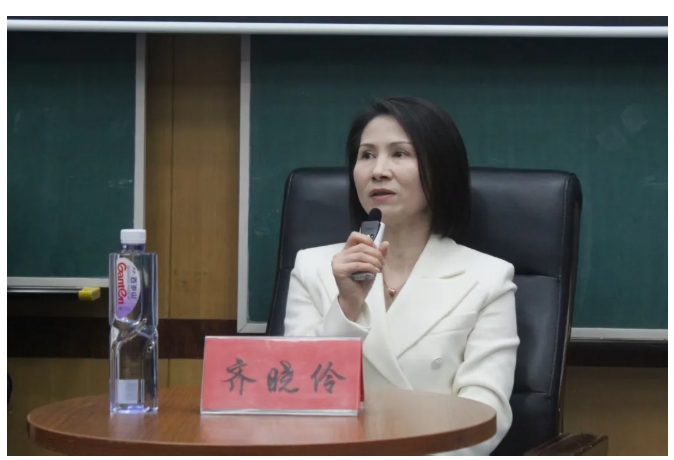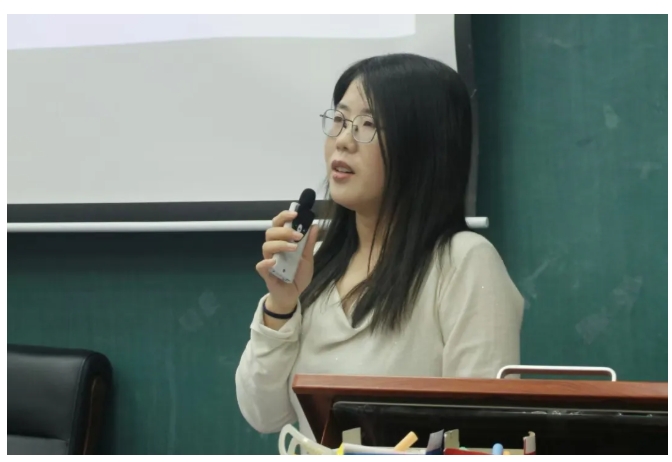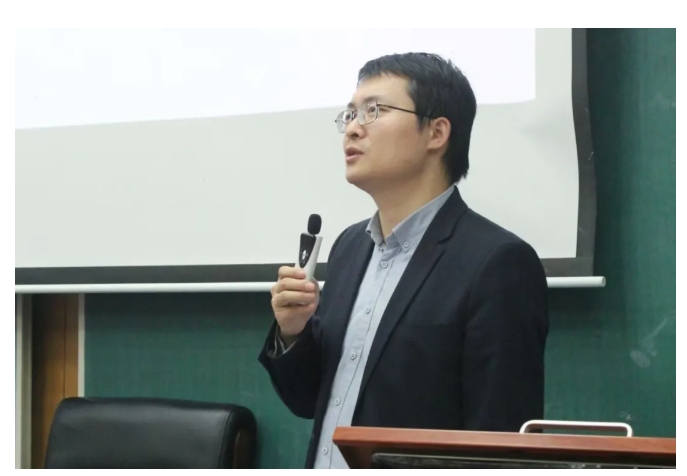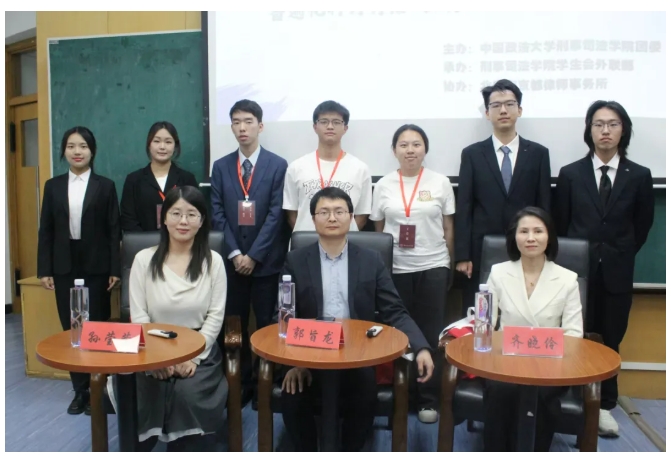On April 24th, 2025, “King&Capital Three People Talk” Academic Forum was successfully held in China University of Political Science and Law, which was jointly organized by the Outreach Department of the Student Union of the School of Criminal Justice of the University of China and King&Capital Law Firm. With the theme of “the legal infringement and criminal law system behind the generalized behavior of network open box incident”, the forum invited experts from judicial practice and academia to get together and conduct in-depth discussion on the legal boundaries, judicial practice and social governance of network open box behavior.
Guests gathered to talk about network security governance
The person in charge of the outreach department of the Criminal Justice College Student Union pointed out in his opening speech that with the rapid development of network technology, the leakage of personal information and network violence caused by the behavior of opening the box are becoming more and more prominent, and there is an urgent need to clarify the boundaries and strengthen the regulation from the legal level. The event invited three important guests: Ms. Qi Xiaoling, senior partner of Beijing King&Capital Law Firm, Ms. Sun Yingying, second grade prosecutor of the First Prosecution Department of Beijing Changping District People's Procuratorate, and Mr. Guo Zhilong, professor of the Institute of Cyberlaw at China University of Political Science and Law, to share their insights on the issues from the perspectives of lawyers' practice, prosecutors' practice, and academic research, respectively.
Multi-dimensional Analysis of the Legal Boundary of Open Box Behavior
Ms. Qi Xiaoling: Protection of Personal Information and Application of Offenses from a Practical Perspective

Combining years of criminal defense experience, Ms. Qi Xiaoling revealed the core legal issue of open-box behavior - the protection of citizens' personal information through abundant cases. She pointed out that the act of opening the box often involves the crime of infringing citizens' personal information and the crime of illegally using special equipment for wiretapping and photo-tapping, etc. In practice, it is necessary to pay attention to the differentiation of the type of information, such as the difference of conviction standards for sensitive information such as the whereabouts of tracks, property information, and so on. She particularly emphasized that the cautious attitude of criminal lawyers towards the transmission of information in handling cases reflects the complexity of personal information protection in practice. In response to the questions of “how to determine the number of pieces of information” and “the treatment of implicated crimes”, she analyzed the key standards of conviction and sentencing and the practical difficulties by combining judicial interpretations and typical cases.
Prosecutor Yingying Sun: Criminalization and Evidence of Open Box Behavior in Criminal Proceedings

Prosecutor Sun Yingying used real cases in judicial practice as an entry point to analyze the elements of criminal procedure for the act of opening a box. She pointed out that the criminal prosecution of open box behavior needs to meet the “seriousness of the circumstances”, such as the crime of violating citizens' personal information needs to meet the standard of the number of articles of information or illegal income. She emphasized the importance of the completeness of the chain of evidence for conviction through cases such as “illegal access to the whereabouts of celebrities by star-crossed fans” and “love triangle triggered by online provocations”, and reminded the public that they need to abide by the ethical bottom line of online speech, and avoid any “petty disputes” over the “smallest of disputes”. She also reminded the public that online speech needs to adhere to the moral bottom line and avoid escalating into a criminal offense due to “petty disputes”. She also revealed that the current low criminalization rate of open-box cases is mainly limited by the difficulty of evidence collection and cross-border server jurisdiction.
Prof. Guo Zhilong: Characteristics of New Types of Cyber Violence and Suggestions for Legislative Improvement

Professor Guo Jilong analyzed the attributes of “new type of online violence” from an academic perspective, pointing out that it has the characteristics of organization, foreign involvement, and online and offline linkage, etc. He also pointed out that it has the characteristics of “new type of online violence” in the Civil Code, such as the “new type of online violence”. Combining the difference between privacy and personal information protection in the Civil Code, Prof. Long proposes the inadequacy of the current criminal law to protect “private information”, and suggests the creation of a special crime to strengthen the protection of privacy in cyberspace. With regard to the governance of the spread of open-box information on extraterritorial platforms, he called for strengthening international judicial cooperation, drawing on the experience of combating telecommunication network fraud, and maintaining order in cyberspace through special actions and long-term mechanisms. In addition, he discussed the boundary between freedom of expression and cyber violence, and emphasized the application of the principle of proportionality in judicial decisions.
III. Interactive Exchange, Focusing on Practical Difficulties
In the Q&A session, guests and audience members exchanged views on hot issues such as the balance between legality of forensics and privacy protection, the criminal liability of platform inaction, and the risk of personal information in the era of artificial intelligence. Hot issues were exchanged. In response to the case of a student who recorded evidence of tampering with the production date in a supermarket and was found invalid, lawyer Qi Xiaoling pointed out the difference between civil and criminal evidence standards and suggested fixing the evidence through legal means; Prof. Guo Zhilong, on the issue of platform responsibility, said that there are challenges in the current legal regulation of offshore platforms, and that it is necessary to promote synergistic governance between technology and the law. Prof. Guo Zhilong, on the issue of platform liability, said that there are challenges in the current legal regulation of offshore platforms, and that synergistic governance between technology and law should be promoted. Prosecutor Sun Yingying combined the case of “privacy leakage caused by emotional disputes” to emphasize the undesirability of “fighting violence with violence”, and called for rational defense of rights through civil infringement lawsuits or criminal reports.
Looking into the Future, Building a Civilization of Digital Interaction
In conclusion, the forum pointed out that online open box behavior is not only a problem of individual privacy infringement, but also an important challenge for social governance in the digital era. As Professor Guo Zhilong emphasized in his conclusion, “The law should face the threat of network violence to public trust and repair the civilized order of digital interaction.”
The forum provided a communication platform for teachers and students to combine practice and theory, and also provided new ideas to promote cybersecurity legislation, judicial practice and public education.





